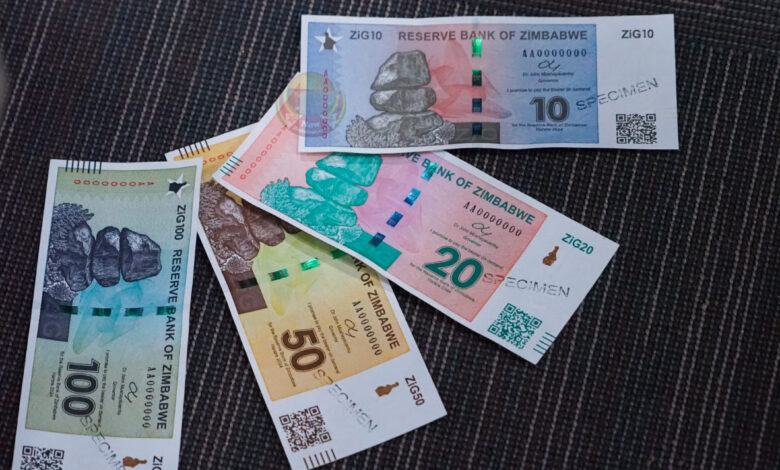ZiG raises concerns among Bulawayo residents

By Ndumiso Tshuma
Introducing the new Zimbabwe Gold (ZiG) currency has sparked unease in Bulawayo, with residents expressing anxieties about its impact on their transactions.
Taxi driver Admire Musekwa fears the ZiG won’t be accepted at fuel stations, which primarily deal in USD and South African Rand.
“Clients might offer the equivalent ZiG amount, but I can’t accept it. Fuel stations only take USD and Rand. This makes it difficult for me to even acquire ZiG notes,” Musekwa explained.
Thulisiwe Mpofu, an informal trader, anticipates refusing ZiG payments. “Most shops where I buy and resell goods only accept foreign currency. Ordering in Rand and USD is easier. The ZiG won’t be useful for buying goods,” Mpofu stated, preferring USD and Rand for transactions.
Rufaro Gwanziura, a parent, worries about potential school fee hikes due to the ZiG. “The school fees might be higher than last term when I paid in RTGS. Budgeting for my daughter’s education is difficult with the ZiG’s introduction,” Gwanziura said, concerned about rising prices for uniforms, textbooks, and other necessities.
Nhlanhla Mlalazi, a Bulawayo resident, is cautiously optimistic: “We’ll get used to the ZiG like the Bond note. However, we’re accustomed to foreign currency. I’m curious to see how the ZiG fares in trade.”
Sibalukile Nare, a student, questions the ZiG’s strength: “Will the ZiG be on par with other currencies? Ours is always considered weak. Will it solve the issue of needing multiple notes for a single purchase?” Nare asked, referencing the past use of Bond notes.
Economist Prosper Chitambara believes citizens will gradually see more goods and services priced in ZiG, aligning with the country’s de-dollarisation plan. “The government requiring 50% of taxes in ZiG is a good start to create demand,” Chitambara explained.
Chitambara clarified that USD pricing will remain, while ZiG pricing will fluctuate based on the market exchange rate.
He acknowledged the potential for a black market to emerge, historically linked to local currency depreciation.
Regarding school fees, Chitambara stated, “Government schools will accept local currency, but private schools might pose a challenge. However, as we move towards de-dollarisation, we’ll likely see more services offered in local currency.”






